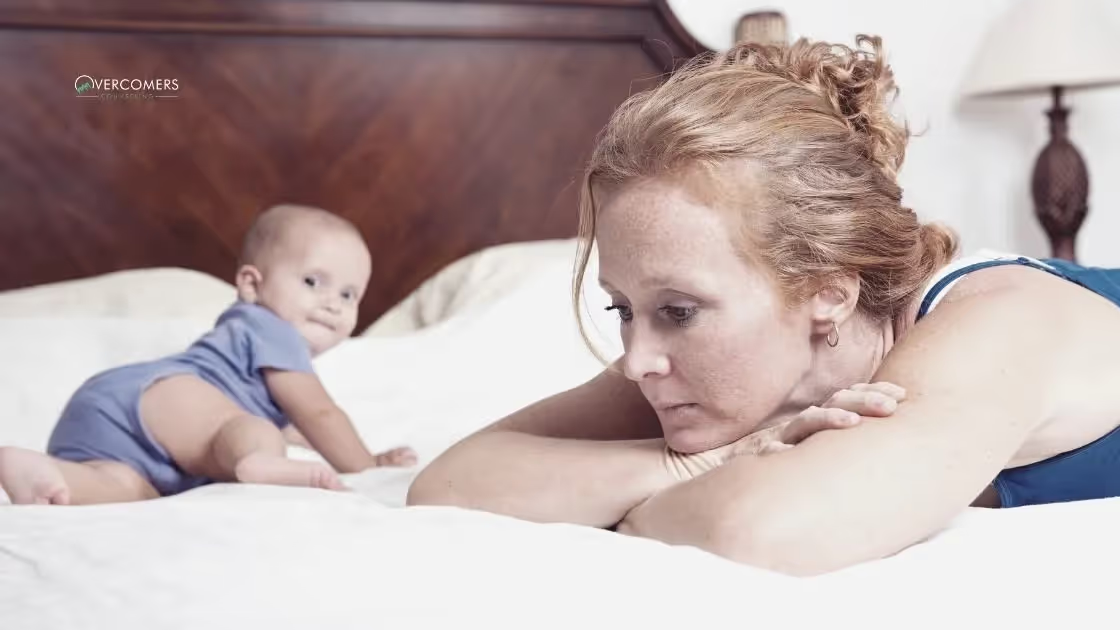The birth of a newborn child should be a joyous occasion, a reason for celebration. Childbirth is one of the miracles of life. And yet, many women suffer...

The birth of a newborn child should be a joyous occasion, a reason for celebration. Childbirth is one of the miracles of life. And yet, many women suffer from postpartum depression- and still others, a more serious condition called postpartum psychosis. Postpartum psychosis symptoms are more severe and potentially dangerous than postpartum depression. However, both postpartum depression and postpartum psychosis symptoms should be identified and immediately treated by a licensed mental health professional. Postpartum psychosis symptoms often manifest themselves within the first two weeks of childbirth. Postpartum psychosis symptoms often mimic other serious mental illnesses. In fact, those most at risk for suffering from postpartum psychosis symptoms have a history or family history of bipolar disorder or other psychotic episodes. Let's take a look at some postpartum psychosis symptoms.
Postpartum psychosis symptoms may include hallucinations. Hallucinations often include seeing people or objects that aren't there. Hallucinations may also include inventing circumstances or events that never really happened. Suffering from hallucinations can have a serious, debilitating effect on a new mother's mental health. Among other things, hallucinations often cause the mother to be distracted from caring for her child. If a new mother is obsessed with a false reality caused by hallucinations, she may be inclined to neglect her baby. Remember, the nature of hallucinations is that you cannot distinguish them from actual reality. For someone suffering from postpartum psychosis symptoms like hallucinations, the line between reality and fantasy often becomes blurred. Hallucinations can cause irrational fears, nightmares, insecurity, anxiety, and mental numbness. All of which may cause a mother to neglect or even reject her baby. If you or someone you know suffers from hallucinations after childbirth, please seek the help of a licensed, professional counselor.
Postpartum psychosis symptoms include suffering from paranoia. Paranoia, when identified as one of the postpartum psychosis symptoms, is a mental condition that causes delusions. These delusions often manifest themselves as fear of persecution, irrational jealousy, or exaggerated self-importance. A person suffering from paranoia usually takes these delusions and uses them to create an elaborate system where the world is against them. Paranoia may cause a new mother to turn against her loved ones, believing they mean to harm her or the baby. Delusions caused by paranoia may influence the new mother to invent conspiracies, creating imaginary enemies. Postpartum psychosis symptoms related to paranoia may also cause the new mother to aggrandize herself or her baby. Paranoia may cause the new mother to see herself or her baby as super-special, chosen, or even predestined for greatness. These delusional feelings of self-importance may lead the new mother to be over-protective. She may also feel skeptical of others' motives- doubting her partner, friends, and family members. Remember, for someone suffering from delusions or hallucinations, their perceptions seem real to them. So, trying to reason with them may not work. Seek the help of a licensed professional counselor, someone who can effectively communicate with them.
Postpartum psychosis symptoms include a decreased need for sleep. After any pregnancy, hormone levels have changed- which may cause any number of physical, mental, and/or emotional changes. Depression often causes lethargy, fatigue, and a general desire to do nothing. However, postpartum psychosis symptoms such as a decreased need for sleep often cause the new mother to have a kind of insatiable, manic energy. Those who suffer from postpartum psychosis symptoms sleep very little, not because they cannot sleep, but because they don't want to. Hyperactivity often causes exhaustion, fatigue, mental numbness, and/or carelessness. Quality sleep is crucial to good mental and emotional health. And yet, new mothers often do not get enough sleep. Let's face it- it's challenging enough caring for a newborn. But for those suffering from postpartum psychosis symptoms such as hyperactivity, the challenge can seem insurmountable. Caring for a newborn requires self-discipline, self-sacrifice, and the ability to be mentally and emotionally present with the child. Lack of sleep may have serious consequences, for both the mother and the baby. Lack of sleep, just like the other postpartum psychosis symptoms should never be dismissed or taken lightly.

Postpartum psychosis symptoms include rapid mood swings. Changes in hormones during and after pregnancy may drastically affect a new mother's emotional health. Rapid mood swings mean you may be extremely happy one moment, and sad or grumpy the next. Let's face it, everybody gets moody. It's especially easy to get moody when you're adjusting your life to caring for a newborn baby. However, as one of the postpartum psychosis symptoms, rapid mood swings may have more serious consequences. Rapid mood swings don't just go from happy to sad- they are more extreme. Those suffering from rapid mood swings may go from feeling extreme joy to extreme despair. They may aggrandize themselves and their baby, causing almost narcissistic feelings of pride and joy. And the next moment, they may feel extreme despair about their future, purpose in life, or even whether life is worth living at all. Rapid mood swings, as one of the postpartum psychosis symptoms, go beyond just feelings. Often, these rapid mood swings inspire a new mother to act on her extreme feelings.The consequences of making choices for you or your baby when suffering from rapid mood swings can be disastrous. Seek professional help.
In rare cases, postpartum psychosis symptoms may include self-harm or harming the baby. It's not surprising from the other extreme symptoms we've examined, that postpartum psychosis symptoms can lead to thoughts of suicide or infanticide. Delusions, hallucinations, lack of sleep, and rapid existential mood swings often contribute to a new mother taking drastic, unthinkable action. Self-harm and thoughts of suicide or infanticide are postpartum psychosis symptoms that need immediate, professional treatment. If you or someone you know suffer from any postpartum psychosis symptoms, immediately seek advice and treatment from a licensed, professional counselor.
Although rare, postpartum psychosis symptoms are very real and very dangerous. If you or someone you know is uncertain about whether someone is suffering from postpartum psychosis symptoms, seek help. All depression is debilitating. All depression is painful and damaging to your mental and emotional health. Postpartum psychosis symptoms are severe, and if left untreated may escalate with severe consequences. Don't ignore or dismiss postpartum psychosis symptoms. Seek treatment from a licensed professional counselor, who can help you better identify, discern and heal postpartum psychosis symptoms. Healing is possible. Treatment is available. There is hope.
https://www.amazon.com/Understanding-Postpartum-Psychosis-Temporary-Madness/dp/0313353468/ref=sr_1_1?crid=FQ5EPJALD9BU&keywords=postpartum+psychosis&qid=1658765314&sprefix=postpartum+psychosis%2Caps%2C116&sr=8-1
https://www.amazon.com/Wasnt-Supposed-Like-This-Postpartum/dp/099481593X/ref=sr_1_2_sspa?crid=FQ5EPJALD9BU&keywords=postpartum+psychosis&qid=1658765335&sprefix=postpartum+psychosis,aps,116&sr=8-2-spons&psc=1
Postpartum depression usually arises from a mix of factors rather than a single cause: the sudden drop in hormones like estrogen and progesterone after childbirth, a personal history of depression or other mental-health conditions, and major life stressors. Physical and emotional exhaustion from childbirth and caring for a newborn, chronic sleep deprivation, and limited support from a partner, family, or friends can all increase the risk. Overcomers Counseling provides compassionate, practical care to help new parents understand these contributors and find steady, evidence-based support as they recover.